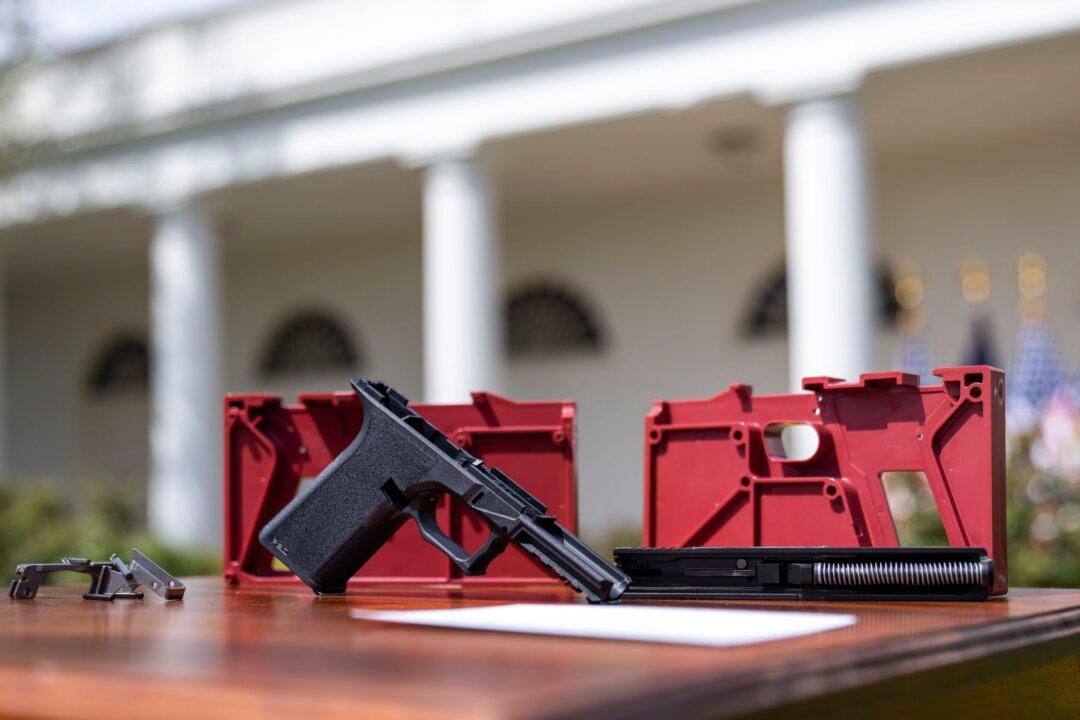The proliferation of “ghost guns” at crime scenes is a problem, but not adequately prosecuting repeat offenders under the law is a much greater concern, and focusing on the latter will make a dent in violent crime, according to current and former law enforcement members.
Recently, the political wave to regulate ghost guns reached the White House, as President Joe Biden announced a new rule on April 11 to regulate such guns to fight violent crime.





